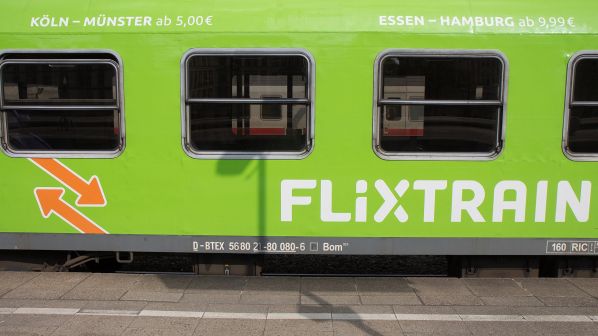All five requests apply to the conventional network and do not include high-speed lines.
FlixTrain is seeking paths on the following routes from the end of 2020:
- Paris Austerlitz - Bordeaux Saint Jean: one train pair per day with six intermediate stops
- Paris Bercy - Toulouse Matabiau: two train pairs per day with seven intermediate stops
- Paris Bercy - Nice: overnight service with nine intermediate stops
- Paris Bercy - Lyon Perrache: five train pairs a day with three intermediate stops, and
- Paris Gare du Nord- Brussels North: seven train pairs per day (regular interval two-hourly pattern) with a stop at Saint-Quentin.
The Brussels service would run via the Maubeuge - Quevy (Belgium) line, following the route used by TEE and Eurocity services before the introduction of Thalys high-speed services between the French and Belgian capitals.
All of these services would be operated by locomotive-hauled trains.
In accordance with European law, any public transport operator or authority that may be affected by the launch of the new open-access services now has one month to apply to Arafer for an economic equilibrium test. This will establish whether the proposed services are likely to abstract revenue from trains operating under Public Service Obligation (PSO) contracts.
Earlier this month Trenitalia subsidiary Thello revealed it is seeking authorisation from Arafer to operate Milan - Turin - Lyon - Paris high-speed services from June 2020.

